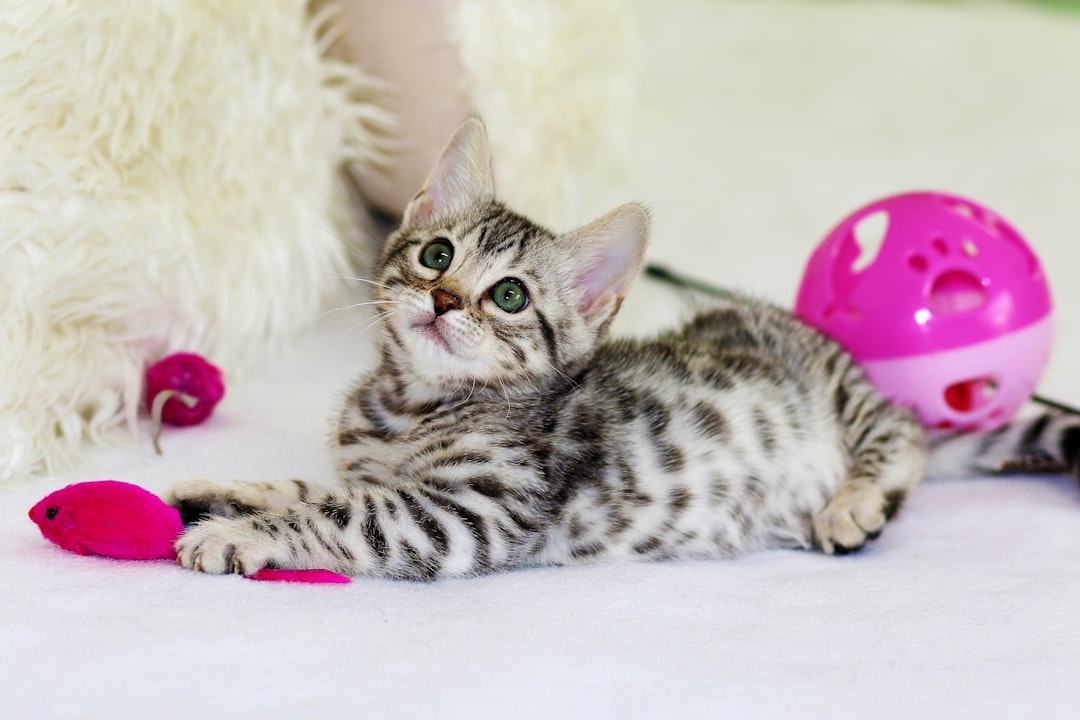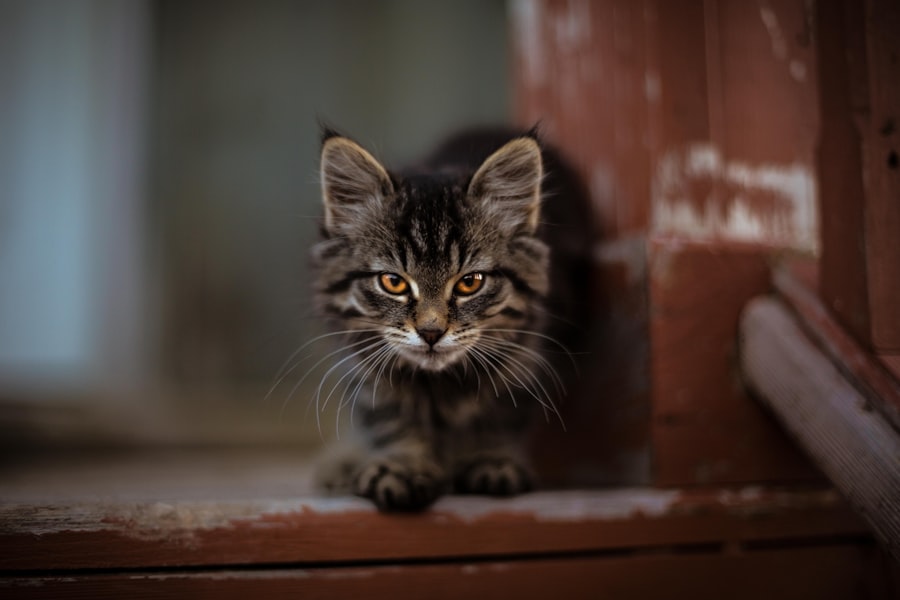Preventing Feline Intruders: Tips for Planters

Cats invading gardens and planters can be a frustrating problem for many gardeners. These feline intruders can cause damage to plants and soil, and their feces can pose health risks. In order to maintain a beautiful and healthy garden, it is important to understand the reasons behind this behavior and implement strategies to prevent it.
Key Takeaways
- Feline intruders can cause damage to planters and gardens, making it important to find ways to keep them out.
- Common breeds of cats that tend to invade gardens include domestic cats, feral cats, and outdoor cats.
- Cats are attracted to gardens and planters because of the soil, plants, and potential prey.
- Physical barriers like fencing and netting, as well as natural and chemical repellents, can help keep cats out of gardens.
- Providing alternative play areas for cats, choosing the right plants, maintaining a clean garden, and educating neighbors and pet owners can also help prevent feline intrusions.
Understanding the Problem: Why Feline Intruders are a Concern for Planters
Cats can cause damage to plants and soil in a number of ways. They may dig up plants, causing them to become uprooted or damaged. Cats also have a tendency to use loose soil in planters as a litter box, which can lead to unsightly and unsanitary conditions. Additionally, their scratching behavior can damage the bark of trees and shrubs.
Another concern with cats invading gardens is the health risks associated with their feces. Cat feces can contain parasites such as Toxoplasma gondii, which can be harmful to humans if ingested. This is especially concerning if you have young children who may come into contact with the contaminated soil.
Identifying the Culprits: Common Breeds of Cats that Tend to Invade Gardens
While any breed of cat has the potential to invade gardens, there are certain breeds that are known for their roaming and exploring tendencies. Some common breeds include the Bengal, Siamese, Maine Coon, and Abyssinian. These breeds are often more curious and adventurous than others, making them more likely to venture into gardens and planters.
Analyzing the Causes: What Attracts Cats to Your Garden and Planters
| Cause | Description | Impact |
|---|---|---|
| Soil Quality | The type and quality of soil in your garden and planters | Determines the health and growth of plants, which can attract or deter cats |
| Plant Species | The type of plants you have in your garden and planters | Certain plants are more attractive to cats, while others are less appealing |
| Water Availability | The availability of water in your garden and planters | Cats are attracted to areas with water sources, such as fountains or bird baths |
| Shelter | The availability of shelter in your garden and planters | Cats are attracted to areas with hiding spots, such as bushes or tall grass |
| Human Interaction | The amount of human interaction in your garden and planters | Cats may be attracted to areas where humans frequently visit or leave food out |
There are several factors that can make gardens and planters attractive to cats. Loose soil is one of the main attractions, as cats enjoy digging and using it as a litter box. Hiding spots, such as dense foliage or tall grasses, can also be appealing to cats. Additionally, the presence of other wildlife, such as birds or rodents, can attract cats to your garden.
Implementing Physical Barriers: Fencing, Netting, and Other Options to Keep Cats Out
One effective way to keep cats out of gardens and planters is by implementing physical barriers. Fencing can be used to create a boundary around your garden, preventing cats from entering. Netting can also be used to cover planters and prevent cats from digging in the soil. Other options include placing chicken wire or prickly plants around the perimeter of your garden to deter cats from entering.
Using Repellents: Natural and Chemical Solutions to Deter Feline Intruders

There are a variety of natural and chemical repellents that can be used to discourage cats from entering gardens and planters. Natural options include citrus peels, coffee grounds, or lavender oil, as cats are known to dislike these scents. Chemical repellents, such as cat deterrent sprays or motion-activated sprinklers, can also be effective in deterring cats from your garden.
Creating Distractions: Providing Alternative Play Areas for Cats to Keep Them Away from Your Plants
One strategy for keeping cats away from gardens and planters is to provide them with alternative play areas. This can be done by creating a designated space in your yard where cats can play and explore. This area should include toys, scratching posts, and hiding spots to keep cats entertained and away from your plants.
Choosing the Right Plants: Species that are Less Likely to Attract Cats and Other Wildlife
When selecting plants for your garden, it is important to choose species that are less likely to attract cats and other wildlife. Avoid plants that have a strong scent or produce berries or flowers that are attractive to cats. Instead, opt for plants that have a strong odor or thorny foliage, as these are less appealing to cats.
Maintaining a Clean and Tidy Garden: How Regular Maintenance Can Help Prevent Feline Intrusions
Regular maintenance is key to preventing cats from invading gardens and planters. This includes removing any fallen leaves or debris that may attract cats. It is also important to keep the soil in planters well-mulched and compacted, as loose soil is more inviting to cats. Additionally, regularly inspecting your garden for signs of cat activity, such as digging or feces, can help you address the problem before it becomes more severe.
Educating Neighbors and Pet Owners: Encouraging Responsible Pet Ownership to Reduce Garden Damage
Educating neighbors and pet owners about responsible pet ownership is an important step in reducing garden damage caused by cats. This can be done by sharing information about the potential harm that cats can cause to gardens and the importance of keeping them contained. Encouraging pet owners to spay or neuter their cats can also help reduce roaming behavior.
Seeking Professional Help: When to Call in Experts to Deal with Persistent Feline Intruders
In some cases, dealing with persistent feline intruders may require the help of professionals. If you have tried various strategies and are still experiencing issues with cats invading your garden, it may be necessary to call in experts such as animal control or pest control services. These professionals can assess the situation and provide guidance on how to effectively address the problem.
Preventing cats from invading gardens and planters requires a combination of strategies, including physical barriers, repellents, creating distractions, choosing the right plants, maintaining a clean garden, and educating neighbors and pet owners. By implementing these strategies, you can create a cat-free environment that allows your plants to thrive and reduces the risk of health hazards associated with cat feces. Remember, persistence is key when dealing with feline intruders, and seeking professional help may be necessary in some cases.
If you’re a plant lover and a cat owner, you may have experienced the frustration of finding your furry friend using your planters as their personal playground. But fear not, there are ways to keep cats out of planters and protect your precious plants. In a recent article on Lawn World, they share some effective strategies to deter cats from digging and lounging in your planters. From using natural deterrents like citrus peels and coffee grounds to creating physical barriers with chicken wire or mesh, this article offers practical solutions to keep your plants safe and your feline friend happy. Check out the article on Lawn World’s website for more tips and tricks on maintaining harmony between your plants and your pets. Read more here.
FAQs
What are some common ways cats get into planters?
Cats can jump into planters from nearby surfaces, climb up the sides of the planter, or simply walk into them if they are at ground level.
Why is it important to keep cats out of planters?
Cats can damage plants by digging in the soil, using the planter as a litter box, or knocking over the planter. Additionally, some plants can be toxic to cats if ingested.
What are some natural deterrents for keeping cats out of planters?
Some natural deterrents include placing citrus peels or coffee grounds in the soil, using plants that cats dislike the smell of (such as lavender or rosemary), or sprinkling cayenne pepper around the planter.
What are some physical barriers that can be used to keep cats out of planters?
Physical barriers include placing chicken wire or mesh over the top of the planter, using a motion-activated sprinkler system, or placing a layer of rocks or gravel on top of the soil.
Are there any commercial products available for keeping cats out of planters?
Yes, there are commercial products such as cat repellent sprays or ultrasonic devices that emit a high-pitched sound that cats dislike. However, it is important to read reviews and research the effectiveness of these products before purchasing.



